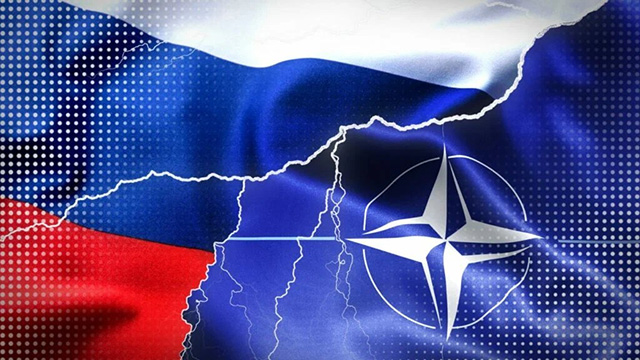
NATO defense ministers meeting this week will begin to rethink the alliance's decades-old policy on Russia relations, POLITICO reminds.
NATO-Russia relations hit rock bottom. In response, NATO labeled Russia as the "most significant and direct threat to Allies’ security," while the Kremlin claims what it calls NATO's eastward expansion is an existential danger.
However, despite the change in tone, NATO still keeps the "Founding Act" with Russia alive. It's a document signed in 1997, six years after the Soviet Union's collapse, stipulating a shared goal to "build a stable, peaceful and undivided Europe."
The NATO-Russia Council, a body set up after the Cold War to partner on security issues and joint projects, has not met since 2022. Relations have been steadily deteriorating for years.
NATO countries are now in the process of trying to "map out different elements of [the Russia] strategy and advance the debates inside the alliance that takes us to subjects like the future of the NATO-Russia Founding Act," a senior U.S. government official told reporters on Friday.
"It's time to now craft a new strategy in terms of [the allies'] specific positions," the official said.
While lower-level official discussions have been going on for months, NATO defense ministerial meeting will be the first of a few rounds of minister-level discussions on this topic. During the July NATO summit in Washington, the allies agreed to draw up a new NATO-Russia strategy at the next alliance summit, set for The Hague in June 2025.
The U.S. official added: "Right now we have to have an understanding across the alliance ... that the [Founding Act] and the NATO-Russia Council were built for a different era, and I think the allies are prepared to say that was a different era in our relationship with Russia, and therefore something new is merited."
The official said that there's no draft yet of the new strategy, as the focus is on gathering views across the 32 NATO countries. They also said the military implication of this political exercise is expected to be limited.
Differences arise as to how far NATO should go to create a new set of rules when it comes to Russia. A NATO diplomat said there is worry among some members that a very aggressive new strategy could send a "signal" that could destabilize Russia.
Then there's the question of Hungary and Slovakia, two NATO countries that are breaking ranks with the rest of the alliance by continuing to maintain contacts with the Kremlin and seeing a strategic value in engaging Russia.
read more in our Telegram-channel https://t.me/The_International_Affairs

 11:35 14.10.2024 •
11:35 14.10.2024 •






















